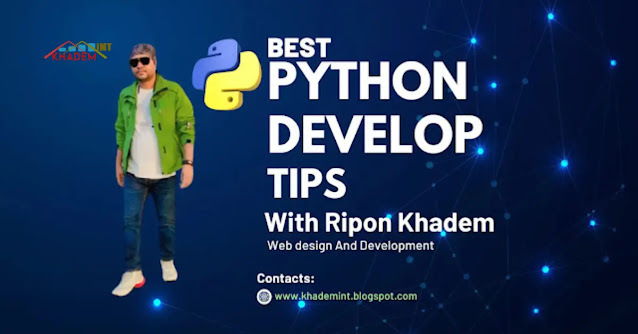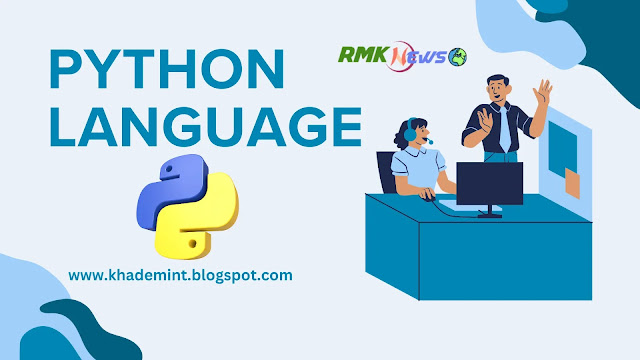The Best Python Language of the Future.
In the ever-evolving landscape of programming languages, one name keeps cropping up: Python. Its meteoric rise over the years leaves no doubt that it is not just a passing trend; Python is here to stay and will shape the future of software development. In this comprehensive review, we examine what makes Python the best choice for developers and why it continues to remain at the top of programming languages. "Python Language".
Unveiling the Python Phenomenon
Python Language often described as an elegant and versatile language, is renowned for its simplicity and readability. These qualities have made it a preferred choice for both seasoned developers and beginners alike. But what exactly is Python Language, and why is it generating such a buzz?
At its core, Python is a high-level, general-purpose programming language that emphasizes code readability and allows developers to express concepts in fewer lines of code than other languages. This succinct, clear syntax serves as a gateway for those new to programming, as it reduces the barriers to entry. Python's "batteries included" philosophy offers a robust standard library, covering a vast array of functionalities. software development language.
Python: The Universal Language
Python Language appeal transcends the boundaries of niche coding communities. Whether you're interested in web development, data science, artificial intelligence, or automation, Python Language has you covered. Its adaptability and the plethora of libraries and frameworks available, such as NumPy, Pandas, Django, and TensorFlow, make it the go-to choice for a myriad of applications.
Let's take a closer look at how Python is revolutionizing various domains.
Python in Web Development
Web developers have increasingly turned to Python Language for creating web applications, thanks to frameworks like Django and Flask. These frameworks simplify the development process, allowing developers to focus on building features rather than wrestling with code. Python's ability to integrate seamlessly with databases, APIs, and front-end technologies has positioned it as a formidable contender in web development.
Python in Data Science
The data science community has embraced Python with open arms. Its extensive libraries, including NumPy and Pandas, streamline data manipulation and analysis. Python Language versatility allows data scientists to switch between tasks effortlessly, from data cleansing to building machine learning models. The demand for Python-savvy data scientists is skyrocketing, cementing its role in the field.
Python in Artificial Intelligence and Machine Learning
Python plays a pivotal role in the world of artificial intelligence and machine learning. TensorFlow and PyTorch, two prominent deep learning frameworks, are Python-based, making it the language of choice for AI practitioners. Its ease of use and wealth of resources, including pre-trained models, position Python as a driving force behind the AI revolution.
Python in Automation
Automation is another arena where Python Language shines. Its simplicity and cross-platform compatibility make it an ideal choice for scripting and automating repetitive tasks. With libraries like Selenium for web automation and OpenCV for computer vision, Python empowers users to streamline their workflows, from mundane office tasks to complex system management.
Python: The Community and Ecosystem
What truly sets Python apart is its vibrant and welcoming community. The Python community is known for its inclusivity and commitment to helping newcomers. With an abundance of online resources, forums, and user groups, getting started with Python has never been easier. Whether you're stuck on a problem or looking for guidance on best practices, the Python community is there to assist, Python Language.
Python's ecosystem is another distinguishing feature. The Python Package Index, known as PyPI, is home to a wealth of third-party libraries and tools. From data visualization with Matplotlib to creating web applications with FastAPI, Python's ecosystem is teeming with solutions to a vast array of challenges. software development language.
Python: The Future Is Bright
As we look to the future, Python's prospects are undeniably promising. Here's why Python is poised to maintain its status as the best language for the long haul:
1. AI and Machine Learning Domination: With AI and machine learning shaping the future of technology, Python's prominence in this field ensures a stable and growing user base. It remains the lingua franca for data scientists and AI engineers.
2. Rising Popularity in Education: Python's simplicity and readability make it an ideal choice for teaching programming. Educational institutions worldwide are incorporating Python into their curricula, which will further solidify its position, Python Language
3. Versatility and Adoption: Python's versatility in various domains, from web development to scientific research, makes it the ultimate utility player. Its adoption across industries guarantees its longevity.
4. Open-Source and Community-Driven: Python is open source, fostering continuous improvement and innovation. The active and supportive community ensures Python will stay relevant and responsive to emerging trends.
5. Pioneering in Quantum Computing: Python is making significant strides in the field of quantum computing with libraries like Qiskit. As quantum computing advances, Python will be a critical tool for quantum programmers. coding language.
Python: The Noteworthy Challenges
While Python is undoubtedly a robust and versatile language, it's not without its challenges. As we navigate the ever-evolving landscape of technology, here are some considerations to keep in mind:
1. Global Interpreter Lock (GIL): Python's GIL can limit multi-threaded performance, particularly in CPU-bound applications. Developers may need to explore workarounds or use alternative languages for such scenarios.
2. Performance Concerns: While Python excels in many areas, raw performance isn't always its forte. In scenarios where high performance is critical, developers may explore languages like C++ or Rust.
3. Dependency Management: Python's dependency management can be a complex and sometimes challenging aspect. Tools like pip and virtualenv help address this issue, but it's essential to approach dependency management with care, Python Language.
The Bottom Line
In a world where technological advancements are ceaseless, Python stands as a pillar of reliability and innovation. Its ever-growing user base, coupled with its adaptability to an array of industries, ensures its place at the forefront of programming languages. Python's community-driven development, coupled with its expanding ecosystem, makes it the ideal choice for developers, both seasoned and novice.
As we navigate the vast landscape of programming languages, Python remains a beacon of hope, simplicity, and endless possibilities. With its undeniable impact on the present and its promising role in shaping the future, Python is, without a doubt, the best language of the future, Python Language.
So, whether you're a curious beginner looking to embark on your programming journey or an experienced developer seeking to broaden your skill set, Python is the language that promises to lead you into the future of software development. Embrace Python, and embrace the future. coding language.




.webp)

.png)
.png)
.png)


